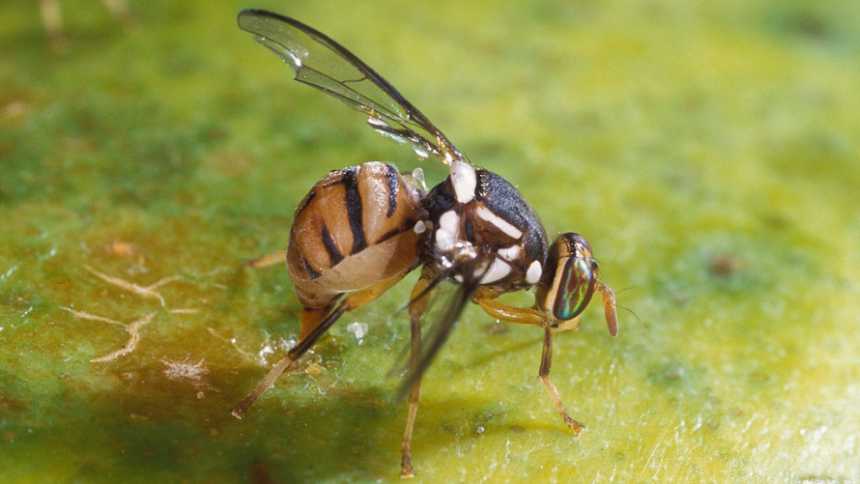Heads Up: Exotic Fruit Fly Finds Spark New Quarantine in Florida

Recent detection of Oriental fruit flies has produce growers in Central Florida on alert. Photo by Scott Bauer
Attention, Florida growers! Another invasive pest alert has been sounded. The Florida Department of Agriculture and Consumer Services (FDACS) has positively identified the presence of Oriental fruit flies, Bactrocera dorsalis, in Pinellas County. A quarantine has been established in the St. Petersburg area prohibiting the movement of fruit, vegetables, and nuts without a compliance agreement from the department.
The initial flies were discovered during routine trapping and additional flies were discovered during expanded trapping activities, according to FDACS officials.
The Oriental fruit fly has been trapped several times in Florida since 1964 and each time has been successfully eradicated. It attacks more than 436 different fruits, vegetables, and nuts. The fruit flies lay their eggs in host fruits and vegetables. In a few days, the eggs hatch and maggots render the fruits or vegetables inedible.
Treatments are being conducted in a 1.5-square-mile area around the fly detections. The treatments consist of male annihilation technique (MAT), foliar spot treatment, soil drench treatment, and fruit removal. MAT treatment includes a bait and insecticide mixture, killing the flies when they feed on the bait. Treatments are applied for a period of two life cycles of the fly (approximately 60 days) past the date of the last detection. Foliar spot treatment uses Spinosad, an insecticide derived from naturally occurring soil organisms and commonly used by organic growers, to spot treat host trees in the area.
Soil drench is used on the soil under host trees with fruit known or suspected to be infested with larvae, pupae or a mated female fruit fly. Fruit removal is necessary when larvae is found in infested fruits or vegetables. Fruit from host trees is removed, placed in double bags and properly disposed so flies have no host material to lay eggs.
State and federal agencies will work with local governments and community organizations to keep the public informed. More information can be found at FDACS.gov/OFF.









